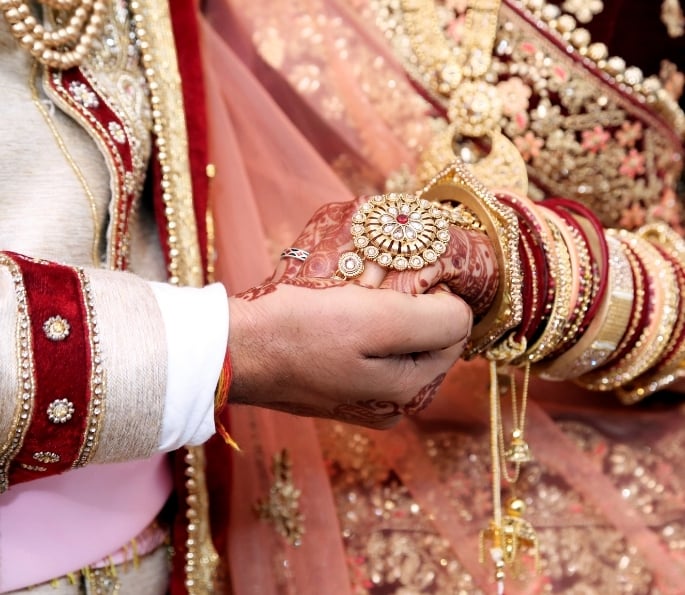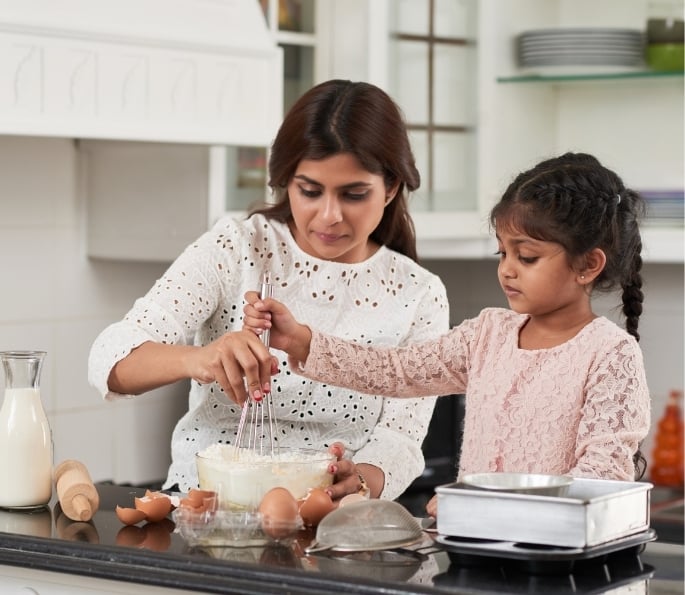Over time, even the idea of refusal becomes paralysing.
For many South Asian daughters, the word “no” carries consequences far beyond a simple refusal.
It is often interpreted as defiance, disrespect, or dishonour, especially within traditional family structures.
This deeply ingrained cultural discomfort with refusal reveals how gender, honour, and silence intersect in South Asian households.
Even in diasporic communities, daughters continue to face pressure to conform to expectations that limit their autonomy.
Whether it’s turning down a marriage proposal, moving out, or declining to care for relatives, saying no often becomes an emotionally fraught experience.
In a society where female virtue is linked to obedience, this one word can feel dangerous.
The Weight of Honour and Obedience
 From a young age, South Asian daughters are taught that their actions reflect the family’s reputation.
From a young age, South Asian daughters are taught that their actions reflect the family’s reputation.
The concept of “izzat,” or honour, is often associated with how well a daughter follows rules and maintains modesty.
Obedience is not just encouraged. It is demanded, especially when it comes to elder authority.
Saying no, therefore, threatens not only the daughter’s character but the family’s social standing.
These dynamics often lead girls to internalise guilt, choosing silence over honesty to maintain peace.
Even when desires or needs are valid, daughters are reminded that submission is a virtue.
In such an environment, personal boundaries are rarely welcomed.
The Fear of Being the ‘Bad Girl’
 The divide between the “good” and “bad” South Asian girl is wide and rigid.
The divide between the “good” and “bad” South Asian girl is wide and rigid.
The “good” daughter obeys, keeps quiet, dresses modestly, and avoids topics like sex, mental health, or romance.
The “bad” one questions, pushes back, and asserts autonomy, traits often mistaken for shameful rebellion.
This binary is reinforced by family, media, and social circles, punishing daughters who challenge norms.
Even mild disagreements are treated as disrespect, making emotional honesty difficult.
As a result, many girls learn that refusal leads to isolation or character assassination.
The cost of saying no is far greater than many are willing, or allowed, to pay.
The Invisible Burden of Emotional Labour
 In countless South Asian families, daughters, especially eldest daughters, serve as emotional caretakers.
In countless South Asian families, daughters, especially eldest daughters, serve as emotional caretakers.
They mediate disputes, absorb tension, and prioritise others’ needs above their own.
Refusing these roles is rarely accepted, as it disrupts the family’s emotional equilibrium.
Saying no to emotional labour is framed as selfish, even when the daughter is struggling herself.
This expectation often forces girls to grow up faster and suppress their vulnerabilities.
The burden of keeping everyone happy weighs heavily, leaving little room for personal growth.
It becomes easier to say yes, even at the cost of mental health.
The Mental Health Toll of Never Saying No
 Studies continue to show the mental health disparities experienced by South Asian women, both in the UK and globally.
Studies continue to show the mental health disparities experienced by South Asian women, both in the UK and globally.
High rates of anxiety, depression, and self-harm are common, often linked to cultural pressure and emotional abuse.
In one U.S. study, 61% of South Asian immigrant women reported worsened mental health after marriage, particularly in multigenerational homes.
Psychological abuse from in-laws was reported by 43%, usually rooted in control and emotional manipulation.
In the UK, 62% of women accessing domestic violence services said abuse came from extended family.
These patterns point to a culture where saying no is denied and punished.
Silence, Collectivism, and the Shame of Defiance
 Collectivist values prioritise family unity and respect for elders, often at the expense of individual freedom.
Collectivist values prioritise family unity and respect for elders, often at the expense of individual freedom.
In many South Asian homes, children, particularly daughters, are discouraged from expressing disagreement.
Questioning decisions, even politely, can be viewed as betrayal or rudeness.
Bodily autonomy and privacy are often compromised in the name of obedience.
Saying no, then, becomes an act of resistance in a space where deference is expected.
This silencing is subtle yet powerful, conditioning daughters to minimise their voices.
Over time, even the idea of refusal becomes paralysing.
Gender Bias Inside the Home
 Household dynamics often reveal a stark gender divide in South Asian families.
Household dynamics often reveal a stark gender divide in South Asian families.
Daughters are expected to clean, cook, and care for younger siblings or elders, while sons are not held to the same standard.
This imbalance is justified through tradition, normalising unequal responsibility.
Girls internalise this bias early, feeling shame or fear when resisting such roles.
Sons are granted more leniency and autonomy, while daughters are penalised for the same choices.
Over time, these expectations become invisible rules, difficult to unlearn.
Saying no to them threatens the entire system.
The Taboo of Independence
 For South Asian daughters, moving out before marriage is a bold, and often frowned-upon, decision.
For South Asian daughters, moving out before marriage is a bold, and often frowned-upon, decision.
Even in diasporic communities, daughters who seek independence may face judgment or estrangement.
Family honour and community gossip play a role in keeping daughters under the same roof.
Parents fear what society will say if their unmarried daughter lives alone.
This cultural pressure not only stifles growth but also conditions women to feel shame for wanting space.
The desire to leave is labelled selfish or dangerous when it may simply be necessary.
Saying no to staying can mean saying goodbye to support.
The Gaps in Mental Health Support
 Despite rising awareness, stigma around mental health persists in South Asian communities.
Despite rising awareness, stigma around mental health persists in South Asian communities.
Over half of South Asian immigrant women in the UK and the US avoid seeking help due to fear of family backlash.
Mental health conversations are often dismissed or misunderstood, particularly by older generations.
Those who do seek help may struggle to find culturally competent therapists.
This leaves many daughters to suffer in silence, unable to articulate their pain or set boundaries.
Saying no becomes even harder when support systems are limited or stigmatised.
Without proper care, the consequences are both visible and invisible.
The simple act of saying no remains one of the most taboo things a South Asian daughter can do.
It challenges centuries of conditioning, cultural values, and family expectations, often triggering emotional and social consequences.
From internalised guilt to community ostracism, the cost of refusal is disproportionately borne by women.
Yet, breaking this silence is essential for both individual and collective healing.
Creating space for South Asian daughters to assert themselves without fear is not rebellion; it is survival.
Until then, many will continue to say yes while their mental health quietly suffers. And the cycle of silence will remain unbroken.






























































